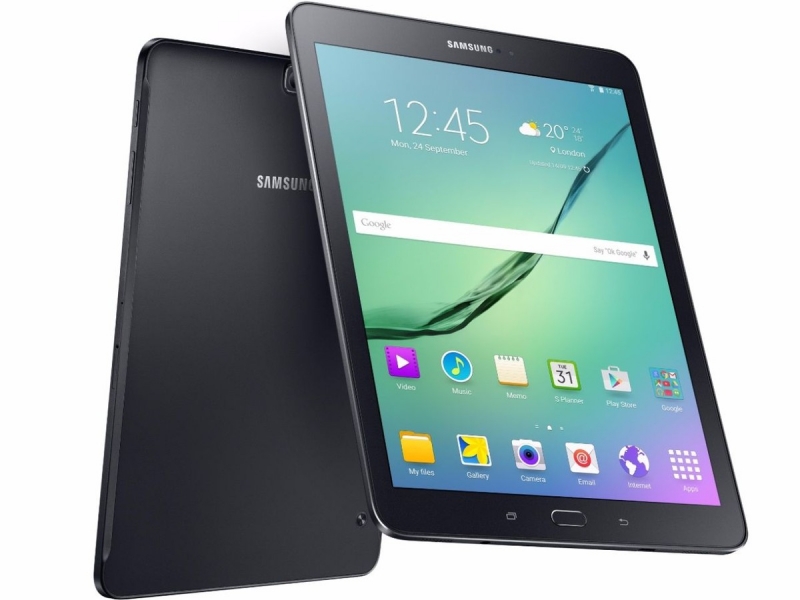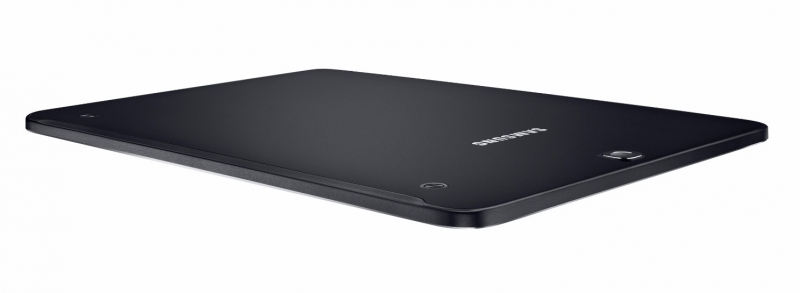
Samsung has today announced the Galaxy Tab S2, a new series of high-end Android tablets that feature a revamped and quite attractive form factor, improving on last year's Galaxy Tab S line-up.
The standout feature of the Galaxy Tab S2 is its 5.6mm thin body, which comes with metal around the edges and plastic on the back. This combination allows both the 9.7- and 8.0-inch models to be very light, at just 389 and 265 grams respectively. Compared to Apple's 9.7-inch iPad Air 2, the equivalent Galaxy Tab S2 is both thinner and lighter.
The Galaxy Tab S2's move to new screen sizes (down from 10.5- and 8.4-inches in the previous generation) has also resulted in an aspect ratio change. Many companies are realizing that 16:9 and 16:10 displays aren't ideal for handheld tablets, which is why Samsung has moved to 4:3 2048 x 1536 displays on both Galaxy Tab S2 models.
Internally Samsung has used an Exynos 5433 SoC, which is the same SoC seen in the Galaxy Note 4. On the CPU side, the Exynos 5433 packs four ARM Cortex-A57 cores clocked at 1.9 GHz, alongside four Cortex-A53 cores at 1.3 GHz; there's also a Mali-T760 MP6 GPU clocked at 700 MHz.

Other specifications include 3 GB of LPDDR3 RAM, 32 or 64 GB of NAND plus a microSD card slot, an eight megapixel rear camera plus a 2.1 megapixel unit on the front, and optional LTE connectivity. The 9.7-inch model comes with a 22.3 Wh (5,870 mAh) battery, while the 8.0-inch variant has a 15.2 Wh (4,000 mAh) battery.
The Galaxy Tab S2 series will go on sale around the globe in August, although pricing hasn't been announced. Considering last year's models retailed for $399 (for the 8.5-inch model) and $499 (for the 10.5-inch), we can expect pricing to be around this mark again.
https://www.techspot.com/news/61431-samsung-announces-galaxy-tab-s2-56mm-thin-chassis.html